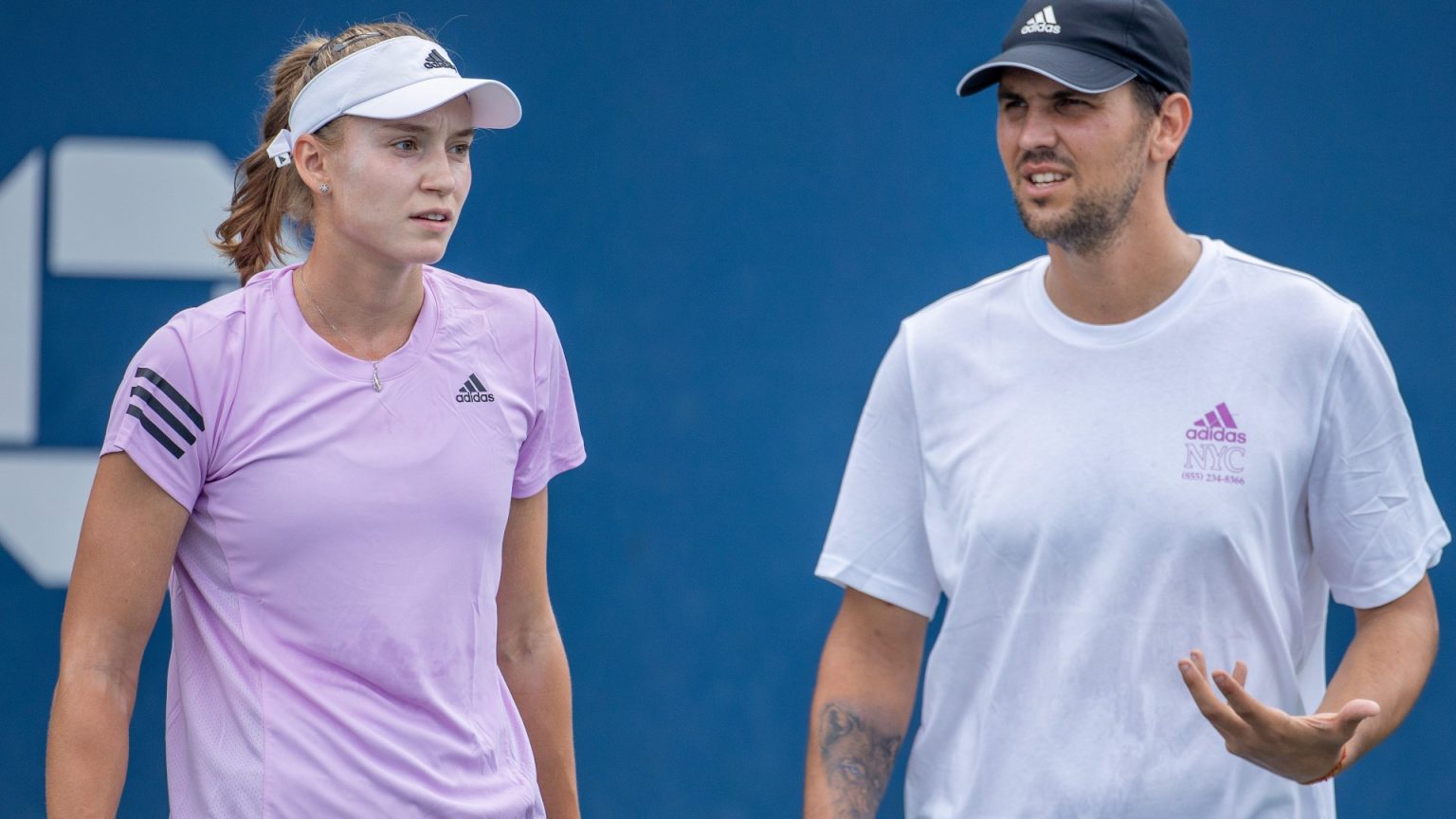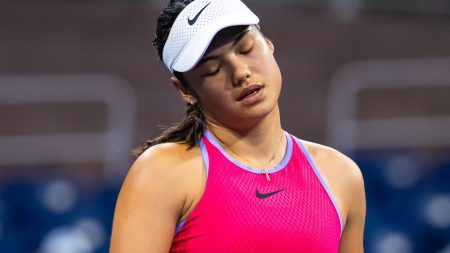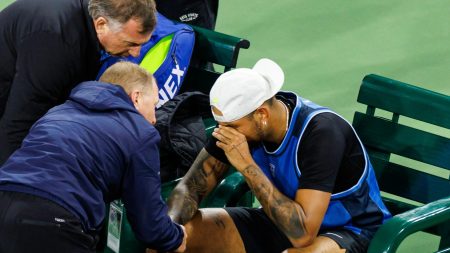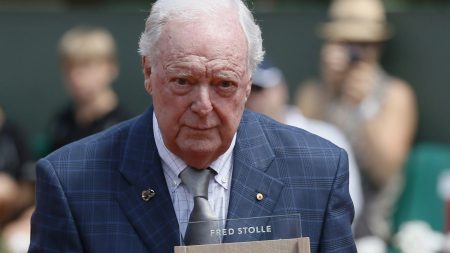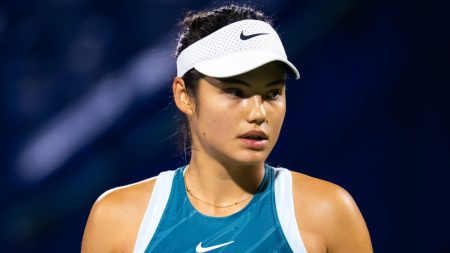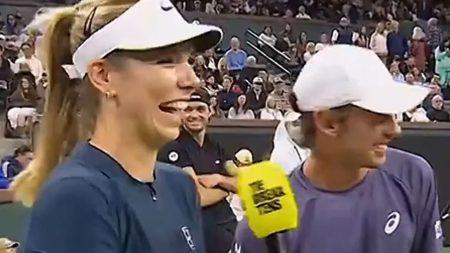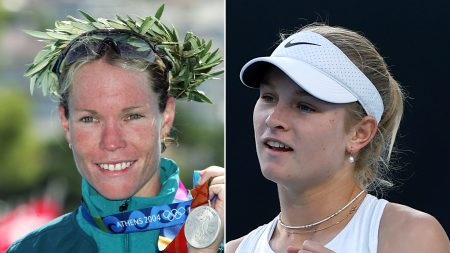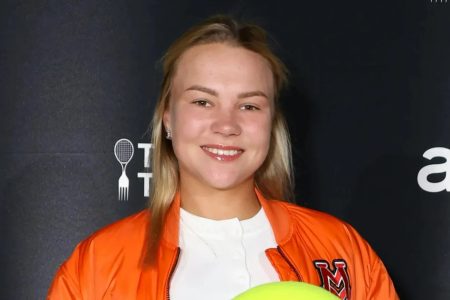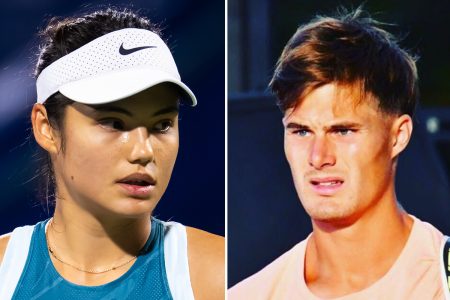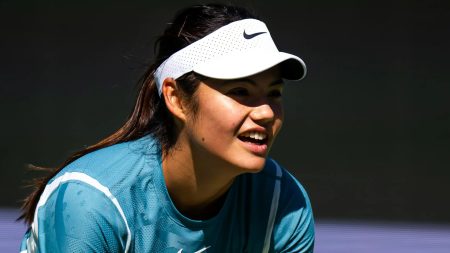Elena Rybakina’s Coach Banned for Mental Abuse
Elena Rybakina, the world’s fifth-ranked tennis player and 2022 Wimbledon champion, has found herself at the center of a significant controversy involving her coach, Stefano Vukov. The Women’s Tennis Association (WTA) has suspended Vukov for a year due to allegations of mental abuse. The details of the investigation remain opaque, as the WTA has not disclosed the specifics of their findings, citing the need to protect the confidentiality and integrity of the process. This decision has sent ripples through the tennis community, raising questions about the scope of the allegations and the impact on Rybakina’s career.
The Leaked Letter and allegations
A leaked letter from the WTA’s CEO Portia Archer, as reported by The Athletic, provides some insight into the nature of the allegations. According to the letter, Vukov, a Croatian coach, is accused of pushing Rybakina, now 25, to excessive physical and mental limits, leading to illness. The letter also claims that Vukov referred to Rybakina as "stupid" and told her she would "still be in Russia picking potatoes" without his guidance. These statements, if true, paint a picture of a highly toxic and abusive coaching relationship that went beyond the bounds of professional conduct.
Rybakina’s Response and Partnership
Despite the allegations, Rybakina has previously stated that she never made any complaints about Vukov’s behavior. At the Australian Open last month, she expressed her disagreement with the WTA’s actions, saying, “I don’t agree with a lot of things the WTA do in the sense of my relationship with Stefano.” This stance underscores the complexity of the situation. Rybakina and Vukov had a working relationship that spanned five years, during which they achieved significant milestones, including her Wimbledon title and an appearance in the Australian Open final. The bond between a player and her coach, especially one who has been a part of her journey from a young age, can be deeply personal and influential, making the decision to sever ties emotionally challenging.
The Provisional Ban and Further Actions
Vukov was initially slapped with a provisional ban by the WTA last year after US tennis legend Pam Shriver, who was then coaching Donna Vekic, publicly expressed concerns that Vukov was in breach of tour rules. The WTA’s statement following their investigation reaffirmed the suspension, stating, “Following this process, the suspension remains in place. To protect the confidentiality and integrity of the investigation and its findings, the WTA will not provide further details. We remain committed to ensuring that all matters are handled in a fair and objective manner in accordance with the WTA code of conduct.” The decision to maintain confidentiality, while protecting the integrity of the investigation, has left many in the tennis community in the dark, fueling speculation and debate.
The Strained Relationship and Team Changes
Rybakina and Vukov ended their professional partnership before the 2023 US Open, a decision reportedly driven by the intense pressure and negative impact on Rybakina’s well-being. Despite the provisional ban, Rybakina continued to name Vukov as part of her team earlier this year, though he could not obtain accreditation for the Australian Open. This move was met with mixed reactions, highlighting the player’s loyalty and the challenging dynamics at play. Tennis legend Goran Ivanisevic, who stepped in to replace Vukov in November 2024, ultimately decided to leave Rybakina’s team, adding another layer of complexity to the situation.
The Aftermath and Support Systems
The fallout from this controversy extends beyond the tennis court. Russian journalist Sofya Tartakova spoke on the Tennis Bolshoy YouTube channel about the "psychological problems" Vukov’s behavior caused Rybakina. Tartakova mentioned that Vukov had reportedly come to the US Open, ready to continue working with her, but Rybakina and her family decided to end the partnership. The journalist described Vukov’s behavior as persistent harassment, including constant insults and pressure. Rybakina’s parents played a crucial role in supporting her, insisting she make a change to protect her mental health. Now, Rybakina is working to overcome the psychological challenges she faces, a process that is undoubtedly difficult but essential for her well-being and continued success in tennis. The tennis community watches closely, hoping for a positive and supportive resolution to this challenging situation.

